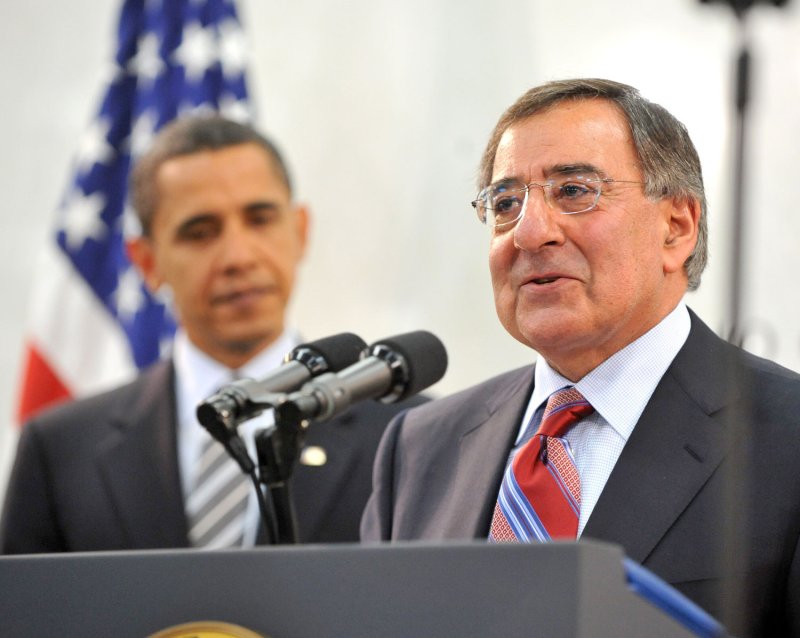United States President Barack Obama is introduced by CIA Director Leon Panetta prior to making remarks at the George Bush Center for Intelligence (CIA Headquarters) in McLean, Virginia on Monday, April 20, 2009. (UPI Photo/Ron Sachs/Pool) |
License Photo
WASHINGTON, June 9 (UPI) -- The CIA is urging a U.S. federal judge to keep sealed Bush-era documents on taped CIA interrogations, arguing their release would imperil national security.
In an affidavit filed with the court, CIA Director Leon Panetta defended classification of records detailing contents of 92 videotapes, their destruction in 2005 by the CIA and what he called "sensitive operational information" about interrogations of detainees at secret overseas prisons, The Washington Post reported Tuesday.
Disclosure of such material to the American Civil Liberties Union "could be expected to result in exceptionally grave damage to the national security by informing our enemies of what we knew about them, and when, and in some instances, how we obtained the intelligence we possessed," Panetta argued in the document filed with U.S. District Judge Alvin Hellerstein in New York.
Panetta said none of the 65 CIA documents the ACLU sought for several years in a Freedom of Information Act lawsuit should be released. He said the administration's release of Justice Department memos authorizing harsh interrogations was different from the CIA's desire to keep classified its documents on specific handling of detainees, the Post said.
While the Justice Department memos dealt with harsh interrogation "in the abstract," the CIA documents are "of a qualitatively different nature" because they described interrogation methods "as applied in actual operations," Panetta said. Disclosure of interrogation details would provide al-Qaida "with propaganda it could use to recruit and raise funds."
Jameel Jaffer, director of the ACLU's national security program, said the Obama administration's argument that the information should remain sealed because it could fuel anti-American propaganda was "grim" and "troubling."















